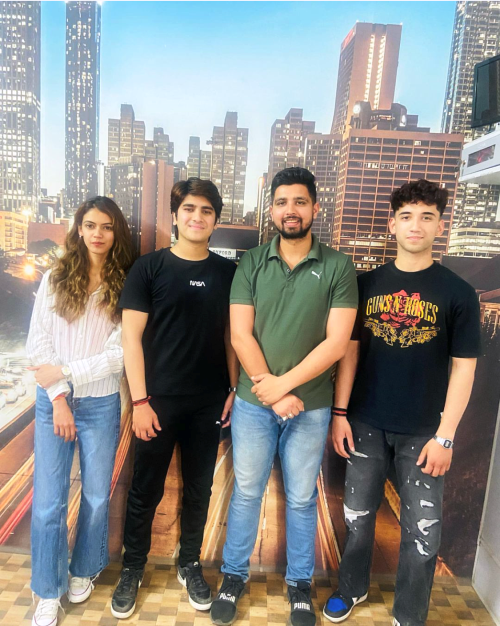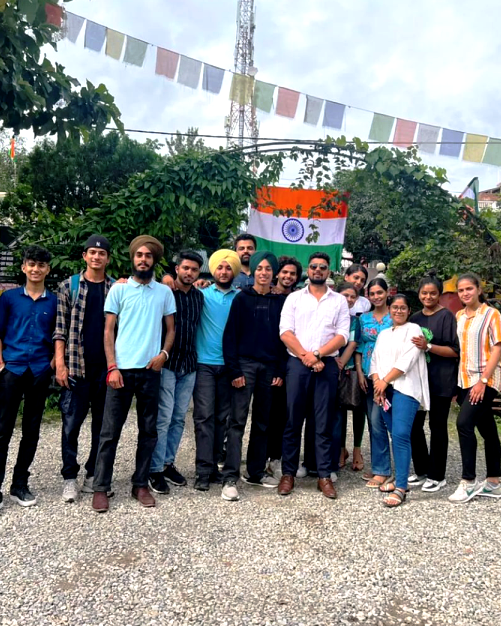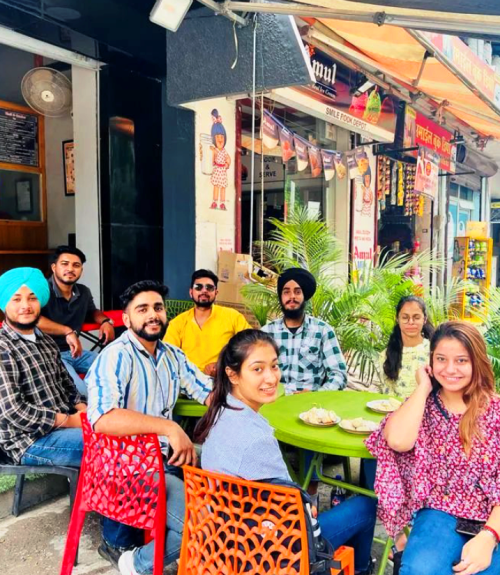Reading Passage 1:Cork
Question 1-5 : TRUE, FALSE, NOT GIVEN
Note: This type of question maintains a sequence. So, if you find the answer to question 2 in the first few lines of Paragraph 2, look for the answer to question 1 in paragraph 1.
Strategies to answer the questions: This post may help you to answer this type of question easily.
Now let’s look at the questions and explanations.
- The cork oak has the thickest bark of any living tree.
Keywords for the question: thickest bark
In paragraph 1 of the passage the author mentions, “Cork- the thick bark of the cork oak tree (Quercus suber) – is a remarkable material.” Again, in paragraph 2, the author mentions, “Its bark grows up to 20cm in thickness.” In both these lines, the word THICK is available. But, in our question, the phrase is the thickest bark. Here, the word thickest is in the superlative form of an adjective, which means this tree has to be in rank no. 1 as far as thickness is concerned. There is no such comparison in the passage and it means that our answer is not available in the passage.
So, the answer is: NOT GIVEN
- Scientists have developed a synthetic cork with the same cellular structure as natural cork.
Keywords for the question: synthetic cork, same cellular structure, natural cork
In paragraph 2 lines 9-13, the author mentions the cellular structure of the bark of the cork oak “ . . .. .. the bark of the cork oak has a particular cellular structure – with about 40 million cells per cubic centimetre – that technology has never succeeded in replicating”.
Here, there is a clear contradiction or disagreement between the question and the above-quoted text from the passage. The question says, scientists have developed or discovered or invented an artificial synthetic cork that matches the cellular structure of natural cork. But the words “technology has never succeeded in replicating” means that technology or scientists have not been successful to make anything similar to the natural cork, with all of the same qualities.
Here, the word replicate may create confusion as a new or unknown word, which means duplicate or same.
So, the answer is: FALSE
- Individual cork oak trees must be left for 25 years between the first and second harvest.
Keywords for the question: individual, 25 years, the first and second harvest
Take a close look at paragraph 4, which talks about the harvesting of an individual cork oak tree. The author says, “From the planting of a cork sapling to the first harvest takes 25 years, and a gap of approximately a decade must separate harvests from an individual tree”.
* Approximately a decade = nearly 10 years. So, the gap is 10 years, not 25 years.
* A gap = must be left……….. between
So, the answer is: FALSE
Note: If there is only a numeric (number) difference between the question and the passage, the answer is always False. Here is a picture to explain question no. 3 in a better way.
- Cork bark should be stripped in dry atmospheric conditions.
Keywords for the question: stripped, dry atmospheric conditions
The word stripped is directly mentioned in paragraph 4 (Follow the order of the text from the previous question). Here, in line 15 the author states, “If the bark is stripped on a day when it’s too cold – or when the air is damp – the tree will be damaged”.
This text agrees with the question, but in a reverse pattern. Here, the word “damp” is antonym for the word “dry”. So, the bark should not be stripped in damp atmospheric conditions; rather, it needs to be stripped in dry atmospheric conditions.
So, the answer is: TRUE
- The only way to remove the bark from cork oak trees is by hand.
Keywords for the question: only way, remove, by hand
The answer is available in paragraph 5, where the author maintains, “No mechanical means of stripping cork bark has been invented, so the job is done by teams of highly skilled workers.”
Stripping = remove
Since the author’s negative statement “no mechanical means has been invented” suggests that there is no mechanical technology available to remove the bark, it has to be done by hand (the hands of highly skilled workers).
So, the answer is: TRUE
Question 6-13: NOTE-COMPLETION (One word only)
Note: This type of question is nothing more than filling in the blanks. Read the title of the note, which is very important to have an idea about the questions and targeted paragraphs to find the answers.
- do not affect the ___________ of the bottle contents
Keywords for the question: affect, bottle contents
First, find the main keyword “bottle contents” and then scan the line carefully.
The author states in paragraph 6, “Recent years have seen the end of the virtual monopoly of cork as the material for bottle stoppers, due to concerns about the effect it may have on the contents of the bottle…..The tiniest concentrations – as little as three or four parts to a trillion – can spoil the taste of the product contained in the bottle. The result has been a gradual yet steady move first towards plastic stoppers and, more recently, to aluminium screw caps.”
Here, look at the synonymous links.
- Affect = spoil
• Bottle contents = the product contained in the bottle
These lines indicate that aluminium screw caps overcame one disadvantage of cork bottle stoppers, which is that they “spoil the taste of the product contained in the bottle”. So, we understand from here that aluminium screw caps do not affect the taste of the product inside the bottle.
So, the answer is: taste
- are ________ to produce
Keywords for the question: produce
- are _______ to use
Keywords for the question: use
In the final sentence of paragraph 6, the author states, “These substitutes are cheaper to manufacture and, in the case of screw caps, more convenient for the user”.
Here,
These substitutes = aluminium screw caps
Manufacture = produce,
for the user = to use
So, we can gather the meaning from here that they are cheaper to produce and more convenient for the user. However, the question requires ONE WORD ONLY, so the answers for questions 7 and 8 have to be “cheaper” and “convenient”.
- Produce = manufacture
- To use = for the user
So, the answers are:
7. cheaper
8. convenient
- Suit the ______ of quality products
Keywords for the question: suit, quality products
We find some information about quality products in the sentence in paragraph 7 line 3: “Firstly, its(the cork bottle stopper) traditional image is more in keeping with that of the type of high-quality goods with which it has long been associated”.
Here, the phrase “in keeping with” means “suit”. So the answer is “traditional image”, but the answer requires only one word, so it has to be “image”. It is because you have to choose a noun between a noun and an adjective.
- Products = goods
• In keeping with = suit
So, the answer is: image
- made from a ______ material
Keywords for the question: made from, material
- easily ______
In the very following sentence, the author mentions “Secondly – and very importantly – cork is a sustainable product that can be recycled without difficulty”.
Recycling often is linked with the material. So the author is referring to its material here. The answer is
“sustainable” and “recycled”
Here, without difficulty = easily
So, the answers are:
10. sustainable
11. recycled
- cork forests aid _______
Keywords for the question: cork forests, aid
- cork forests stop _____ happening
Keywords for the question: cork forests, stop
In paragraph 7 line 9, in the end, the author states about the cork forests – “Moreover, cork forests are a resource which support local biodiversity, and prevent desertification in the regions where they are planted. So, given the current concerns about environmental issues, the future of this ancient material once again looks promising”.
Here, support = aid
Prevent = stop.
So the answers are clearly “biodiversity” and “desertification”
So, the answers are:
12. Biodiversity
13. Desertification
Reading Passage 2 :Collecting as a hobby
This passage mainly deals with the different forms of collecting as a hobby and its psychological aspects. It secondarily deals with the purpose of collecting as a hobby.
Question 14 – 21: Fill in the blanks in a sentence. (Choose ONE WORD ONLY)
- The writer mentions collecting _____ as an example of collecting in order to make
money.
Key words for the question: collecting, make money
The question asks to find which things are collected for making money.
If you scan first sentence of paragraph 2, you will see that the author mentioning- “There are the people who collect because they want to make money – this could be called an instrumental reason for collecting; that is, collecting as a means to an end.”
Here, Because = in order to
So, that’s our first clue matching with the question.
Now, you will look for the next sentence to find out the example – “They’ll look for, say, antiques that they can buy cheaply and expect to be able to sell at a profit.”
Here, the word “,say,” has something special. When you find the word “SAY” in the middle of a sentence with two commas, you can be sure that this particular word is indicating an example or instance.
So, the answer is: antiques.
- Collectors may get a feeling of _________ from buying and selling items.
Key words for the question: collectors, feeling, buying and sellingIn paragraph 2, you will find a sentence stating buying and selling items, that is: “But there may well be a psychological element, too – buying cheap and selling dear can give the collector a sense of triumph”.
Here, a sense of = a feeling of.
So, the answer is: triumph.
You can watch a video on YouTube on how to find the answers for the two questions above. Follow this link:
https://www.youtube.com/watch?v=nwI28glBvVo&feature=youtu.be
- Collectors’ clubs provide opportunities to share ____________
Key words for the question: collectors’ clubs, share
In the opening sentence of paragraph 3, the author states “a group of collectors” – “attending meetings of a group of collectors and exchanging information on items.”
We can understand from the lines that these groups as “collectors’ clubs”. It’s saying that they can exchange information on items while attending those clubs. But the question requires one word only, so we choose the most important word from the sentence – “information”.
Here, a group of = a club and exchange = share
So, the answer is: information.
- Collectors’ clubs offer _______ with people who have similar interests.
Key words for the question: Collectors’ clubs, similar interests.
Again, in this question we find “collectors’ clubs” as in the question above. Therefore, we must stay at paragraph 3 to find the answer. In the second sentence, we see a phrase “like–minded people”.
The phrase like-minded means “people who have the same/similar interests”. And those clubs bring them into “contact” with other collectors, so the answer simply is “contact”. “Attending meetings” in clubs is one
way in which collectors come into contact socially.
Here, in the sentence, bring means offer and people who have similar interests means like – minded people.
So, the answer is: contact/meetings.
- Collecting sometimes involves a life-long ______ for a special item.
Key words for the question: collecting, life – long, special item.
The first clue of the question is given in paragraph 3.
As the questions in IELTS Reading frequently follow the text’s order, you should look at the following sentences and find the similar words to the question you are practicing. The final sentence of paragraph 3 states another purpose of collecting – which is “the desire to find something special” (Here, the word special means special item). But there is no mention of anything similar to “life-long”. Therefore you must continue reading to find the accurate answer. Interestingly, in the very next sentence, the author says “Some may spend their whole lives in a hunt for this” (“the whole lives = life – long”). Now, we can understand that the writer means to say “Collectors sometimes have a life-long desire/ spend their whole lives in a hunt for a special item.” So, the answer can be both “desire” or “hunt”.
Here, the phrase ‘whole lives’ means life- long
So, the answer is: hunt / desire.
- Searching for something particular may prevent people from feeling their life is completely ______.
Key words for the question: searching, prevent, their life.
Have a look at paragraph 4. Here, the author states, “Some may spend their whole lives in a hunt for this. Psychologically, this can give a purpose to a life that otherwise feels aimless.”
Scanning the sentence two times, you will understand that “This” means “spend their whole lives in a hunt for a special item”. We can also understand that “a hunt” means “searching for”.
So, the author is claiming that if they are not looking for a special item, they will feel “aimless”. Then, in the following lines, we are again told (in paragraph 4 line 7-8), if the collector finds that special item, they may then “feel empty”, because the search has ended with the finding of the special item.
So, the answer is: aimless / empty.
- Stamp collecting may be _____ because it provides facts about different countries.
Key words for the question: stamp collecting, facts, different countries.
The main or primary key word for this question is “stamp collecting”, so we have to find that part of the passage which contains information about such type of collecting – which is paragraph 5. In this paragraph, the author mentions, “If you think about collecting postage stamps another potential reason for it – or, perhaps, a result of collecting – is its educational value. Stamp collecting opens a window to other countries, and to the plants, animals, or famous people shown on their stamps.”
The writer is clearly of the opinion that stamp collecting has some educational value as it “opens a window to other countries” with things described or shown on their stamps.
So, the answer is: educational.
- _______ tends to be mostly a male hobby.
Key words for the question: male hobby.
This question has a gender related word, which is “male”. This is our keyword. In paragraph 7, the author talks about “trainspotting” as “a popular form of collecting, particularly among boys and men”. The opening lines say, “In the past – and nowadays, too, though to a lesser extent – a popular form of collecting, particularly among boys and men, was trainspotting.”
Here, boys and men means male.
So, the answer is: trainspotting.
Question 22-26 TRUE, FALSE, NOT GIVEN
Note: This type of questions maintains a sequence. For instance, if you find answer to question 2 in the first few lines of Paragraph 2, look for answer to question 1 in paragraph 1.
- The number of people buying dolls has grown over the centuries.
Key words for the question: the number of, buying dolls, grown.
As, in this question, the primary or main keyword is doll, we have to find every part of the text about “dolls”. Paragraph 8 talks about this topic. But it is about the things which interest doll collectors, but there is no information about the number of people buying dolls. No numeric data is given here.
So, the answer is: Not given.
NB: Sometimes, it can be difficult for you to be sure about this answer (NOT GIVEN). If you are not sure enough, you can skip this question and go to the next one. As you know, these questions are arranged in order, if you find out clues for the answer of next question, then you can be sure that the following sentences has no information about the answer for this question.)
- Sixteenth century European dolls were normally made of wax and porcelain.
Key words for the question: 16th century, made of, wax and porcelain.
In the same paragraph (paragraph 8) about dolls, the writer also says in the second sentence: “These have changed over the centuries from the wood that was standard in 16th century Europe, through the wax and porcelain of later centuries, to the plastics of today’s dolls.” So, it can be gathered from the lines, in 16th century, European dolls were often made of wood. And the wax and porcelain dolls were popular in later centuries, which indicates the 17th century and the ones after.
Here, materials that are used means made of
So, the answer is: False.
- Arranging a stamp collection by the size of the stamps is less common than other methods.
Key words for the question: arranging, by the size, less common.
Paragraph 9 should be focused, which contains information about arranging a stamp collection. In this paragraph, the author only states the reason behind some collectors’ liking to arrange their collection and the types of arrangement. But, you can find no reference to what kind of arrangement is more or less common.
So, the answer is: Not given.
- Someone who collects unusual objects may want others to think he or she is also unusual.
Key words for the question: unusual objects, think.
In paragraph 10, the author says “One reason, conscious or not, for what someone chooses to collect is to show the collector’s individualism”, and gives an example by stating, “Someone who decides to collect something unexpected as dog collars,” (which means unusual objects), they may be passing on their belief (which means they want others to think) that they are interesting as well.
Here, unusual means unexpected
So, the answer is: True.
- Collecting gives a feeling that other hobbies are unlikely to inspire.
Key words for the question: other hobbies, inspire
In the final paragraph, the writer says, “More than most other hobbies, collecting can be totally engrossing, and can give a strong sense of personal fulfillment.” This means collecting needs all your attention and makes you completely satisfied, while most other hobbies could not do the same (more than most other hobbies).
Here, give a sense means give a feeling and inspire means fulfill.
So, the answer is: True.
Reading Passage 3 :What’s the Purpose of Gaining Knowledge?
Question 27-32 List of Headings/ Matching Headlines
In this kind of question, time is a crucial matter. It will take a lot of your important time. You must not waste too much time in other easy question. This will help you to save some extra time which may come beneficial to you. As questions like these target the whole paragraph, we may need some time to get used to at first. You need not panic. Practicing them regularly will surely upgrade your skills. Skills like skimming and scanning will come handy here. Speculating some answers may also help. Most importantly, you need to apply some techniques like avoiding reading the whole paragraph and focusing on key sentences. Read the first lines and, in some cases, the last line. Don’t read the whole paragraph!
- Section A
This section discusses the university founders’ passion to a wide variety of courses and majors. So, we must focus on headings related to those contents – they are ii, vi and vii (headings about the title, there is no heading about the other contents). In section A, the author writes “But what would the founders of these two institutions have thought of a course called Arson for Profit’?”. The author also says: “I kid you not…” to make clear that this course title is not a mere joke. We may have doubts about the existence of the course, but the writer confirms that it does exist. Since this is only one unexpected title, it cannot match with vii (different names) and the author states nothing related to its meanings, so it cannot be ii (with two meanings). The answer is vi because it says A surprising course title.
So, the answer is: vi
- Section B
Section B deals with targeting students of the course because the first sentence says: “the course is intended for prospective arson investigators”. After that the author throws a question: “But wouldn’t this also be the perfect course for prospective arsonists to sign up for?” The author asks this question to show the possibility of attracting the wrong kind of students. The course might attract those students who might be interested in starting fires, not fighting fires.
So, the answer is: viii
- Section C
Section C talks about the author and his life-story about the title of the course. There are only two outstanding headings that could be related to a title – ii and vii. We have already a confirmed answer-vi for Section A. As in this section, the author only states one confusing title that could be recognized by his students in two different ways, as it deals with the two meanings of ‘principles’. So, the answer has to be “a course title with two meanings”.
So, the answer is: ii
- Section D
Section D is a very small paragraph and you can cross out some answers straightaway because you know they are wrong for sure. As an example, in this section, the author does not talk about any commitment, so the answer heading ‘i’ is wrong– “Courses that require a high level of commitment”. Continue to do the same for other answers. Thus, only heading iv – “Applying a theory in an unexpected context” will remain. Here, the writer provides a reference to the idea of the philosopher Kant that any body of knowledge is principled. The author states in the first line that this idea sounds “downright crazy in the light of the evidence”, which is a clear match with “an unexpected context” in the heading when applied to an immoral practice like marketing.
So, the answer is: iv
- Section E
In this section, the writer states two important terms in marketing, means and end, in the very first line. So, there are two important matters which are discussed in this section. In the last lines, he supposes that “A field of knowledge or a professional endeavor is defined by both the means and the end; hence both deserve scrutiny”, which means that both terms are equally important. Therefore, the answer is “the equal importance of two key issues”.
So, the answer is: iii
- Section F
In the last lines final section, the author gives the example of a doctor and a poisoner/murderer. Both may gather the same body of knowledge, but they use that knowledge for completely different purposes/ends, and so we give different names: we say that the doctor is practicing medicine and we say that the other is practicing murder. The author does not talk about anything related to “financial benefits” (heading v) and “a high level of commitment” (heading i). Therefore, the most suitable heading for this section is “Different names for different outcomes” (vii).
So, the answer is: vii
Question 33-36 Summary Completion (using NO MORE THAN TWO WORDS)
In this question type, you are given a short text with some blank spaces. You have to fill in the blanks with one or two words taken directly from the passage. To practice this question type effectively, look at the words or phrases just before and after the blank spaces carefully. This may give you some idea about where to look for the answers in the passage.
- […] undergraduates and who are studying ____
In the final sentence of the first section, the author mentions: “Any undergraduates who have met the academic requirements can sign up for the course in our program in ‘fire science’.” So, it can be said that students who can sign up for the course are undergraduates and those who are studying ‘fire science’. (in this question you can write no more than two words).
So, the answer is: fire science.
- […] that they will become ____
The opening lines of the second section says: “Naturally, the course is intended for prospective arson investigators”. We can see here that expectation means prospective, which means they are studying to be arson investigators in the future. The answer is investigators.
Here, expectation = prospective and will be = in the future
So, the answer is: investigators.
- […] cases of arson and find ____ of criminal intent
In this question, the clause “The course will help them” means students can learn something from the course, so we need to look at this reference in section B, lines 1-3: “…. who can learn all the tricks of the trade for detecting whether a fire was deliberately set, discovering who did it, and establishing a chain of evidence for effective prosecution in a court of law.” Here, “A fire was deliberately set” can be taken as an example of criminal intent, that is: the arsonist deliberately intended to start a fire. Then the course can help them to detect whether it is done deliberately or not, who did it, and find a chain of evidence. So, the answer has to be “evidence”.
Here, find means to detect or establish
So, the answer is: evidence.
- […] leading to successful ____ in the courts.
The answer required for this question is just after an adjective (successful) and in front of an adverb of place (in the courts). Therefore, we can understand that the answer has to be a noun. In section B, the author states the court in this phrase in lines 3-4: “establishing a chain of evidence for effective prosecution in a court of law”. Here, “effective” means “successful”, and “in a court of law” means “in the courts”. So, the answer is “prosecution”.
So, the answer is: prosecution.
Question 37-40 TRUE, FALSE, NOT GIVEN
Note: This type of question maintains a sequence. For instance, if you find answer to question 2 in the first few lines of Paragraph 2, look for answer to question 1 in paragraph 1.
- It is difficult to attract students onto courses that do not focus on a career.
If this statement is true, you must find a sentence in the text conveying the same idea. If this statement is false, you need to point out what is wrong with it and find a sentence in the passage given to correct it. However, there is no reference like that in the passage. In the passage, we can’t find any sentence telling us about difficulties in attracting students onto such courses.
So, the answer is: Not given.
- The ‘Arson for Profit’ course would be useful for people intending to set fire to buildings.
Hence, we have already learned from our previous reading of the passage that “use the very same knowledge” means they can use what they have learned from this course (= this course would be useful for them). Moreover, “destructive, dangerous, reckless activity” can include “set fire to buildings.” Therefore, the answer is Yes. Further in section F, the author once again states the “Arson for Profit” course and mentions: “As we have seen, someone could use the very same knowledge of means to achieve a much less noble end, such as personal profit via destructive, dangerous, reckless activity”.
So, the answer is: Yes.
- Fire science courses are too academic to help people to be good at the job of firefighting.
Look at section B where the author speaks about the knowledge learned on the course to its usefulness for students who want to become firefighters. They will be capable of doing the job in a professional and expert way: “…. programs in fire science: they are highly welcome as part of the increasing professionalization of this and many other occupations”. The course surely helps the students. Here, To be good at the job of means professionalization.
So, the answer is: No.
- The writer’s fire science students provided a detailed definition of the purpose of their studies.
Take a look at section F where the author asks the students about the purpose of the course, “When I ask fire science students to articulate the end, or purpose, of their field, they eventually generalize to something like, ‘The safety and welfare of society,’ which seems right.” Here, they only “generalize”, which means “to make a flat/general statement or form a general opinion”. Their opinion is only general or flat, not detailed or particularly clear. Here, provides a detailed definition of means to articulate.
So, the answer is: No.








